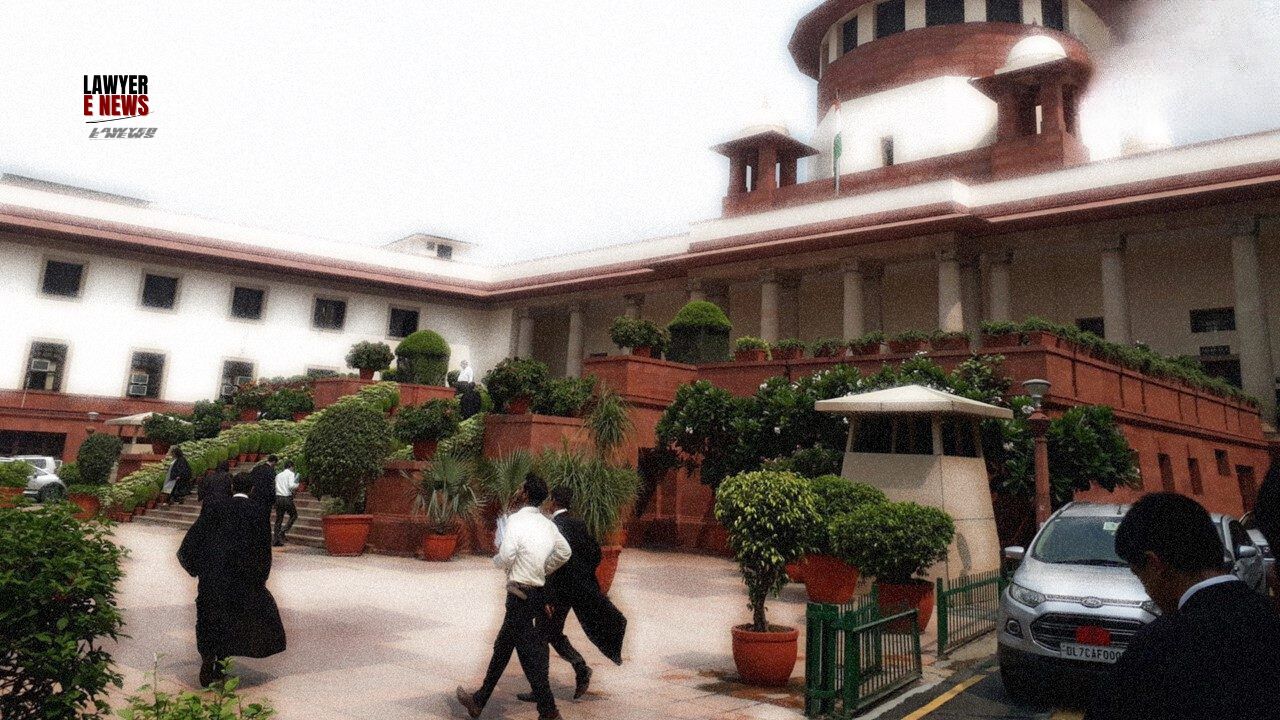-
by sayum
16 February 2026 6:35 AM



In a significant ruling Supreme Court of India declared the arrest of the appellant unconstitutional, citing gross violations of fundamental rights under Article 22(1) of the Constitution. The appellant, arrested for alleged financial offenses, was neither informed of the grounds of his arrest nor produced before a magistrate within 24 hours, thereby violating Article 22(1) and 22(2) of the Constitution and Sections 50 and 50A of the Code of Criminal Procedure, 1973 (CrPC).
The Court held that “failure to communicate the grounds of arrest to the accused in a meaningful manner renders the arrest unconstitutional and vitiates any subsequent remand”. In addition to ordering the immediate release of the appellant, the Court directed the State of Haryana to implement procedural reforms to ensure strict compliance with constitutional safeguards in future arrests.
Furthermore, the Court condemned the inhumane treatment of the appellant, who was handcuffed and chained to a hospital bed after his arrest, stating that such practices amount to "a gross violation of Article 21 and the right to live with dignity".
The case arose from FIR No. 121 of 2023, registered against the appellant under Sections 409, 420, 467, 468, 471, and 120-B of the Indian Penal Code (IPC). The appellant was arrested on June 10, 2024, at his office in Gurugram, Haryana, and was allegedly produced before the magistrate on June 11, 2024, at 3:30 p.m. The appellant contended that:
He was not informed of the grounds for his arrest, violating Article 22(1) of the Constitution and Section 50 of CrPC.
He was unlawfully detained for more than 24 hours before being presented before a magistrate, violating Article 22(2) of the Constitution and Section 57 of CrPC.
He was handcuffed and chained to a hospital bed, violating his fundamental rights under Article 21 of the Constitution.
The Punjab and Haryana High Court dismissed his petition, reasoning that his wife was informed of the grounds of arrest, and thus, no constitutional violation had occurred. The appellant then moved the Supreme Court, challenging the legality of his arrest and treatment while in custody.
Supreme Court’s Observations on the Right to be Informed of Grounds of Arrest
The Supreme Court unequivocally rejected the High Court’s reasoning and held that informing the wife of the grounds of arrest does not amount to informing the arrestee himself. Citing Pankaj Bansal v. Union of India (2024) and Prabir Purkayastha v. State (2024), the Court reiterated: "The requirement to inform an arrestee of the grounds of arrest is not a mere formality but a constitutional mandate under Article 22(1). It must be communicated directly to the person arrested in a meaningful manner so that they understand the reasons for their detention and can effectively exercise their legal rights."
The Court further held that when an arrestee alleges non-compliance with Article 22(1), the burden lies entirely on the arresting agency to prove that the requirement was fulfilled. Rejecting the Haryana Police’s claim that a diary entry recorded compliance, the Court observed: "There must be a contemporaneous record explicitly stating the grounds of arrest and confirming that they were conveyed to the arrestee in a language they understand. A vague entry in a police diary cannot override the constitutional mandate of Article 22(1)."
The Court held that failure to comply with Article 22(1) rendered the arrest illegal and that all subsequent judicial remand orders were also vitiated.
Condemnation of Handcuffing and Chaining of the Appellant in Hospital
The Court expressed shock and dismay over the treatment meted out to the appellant, who was handcuffed and chained to a hospital bed while receiving medical treatment. Citing D.K. Basu v. State of West Bengal (1997) and Sunil Batra v. Delhi Administration (1978), the Court ruled that: "Handcuffing an arrestee without judicial authorization violates the fundamental right to dignity under Article 21. Chaining a person to a hospital bed is an inhuman and degrading practice that has no place in a civilized society."
The Court directed the State of Haryana to issue immediate guidelines to prohibit such inhumane practices and take strict action against police officers who engage in such conduct.
Directives Issued by the Supreme Court
Declaring the arrest of the appellant unconstitutional, the Supreme Court ordered:
The immediate release of the appellant, as his detention was illegal and violated Articles 21 and 22 of the Constitution.
That the State of Haryana issue new guidelines to its police force to ensure compliance with Article 22(1) and CrPC safeguards.
That no arrestee shall be handcuffed or chained to a hospital bed, and any officer engaging in such conduct shall be subject to departmental action and criminal liability.
That all judicial magistrates must verify compliance with constitutional safeguards before authorizing remand of an arrestee.
The Supreme Court also held that filing of a chargesheet or continuation of trial does not validate an unconstitutional arrest, stating: "An illegal arrest is void ab initio. A subsequent chargesheet or judicial proceedings cannot cure the violation of fundamental rights at the time of arrest."
This landmark judgment serves as a strong warning to law enforcement agencies against arbitrary arrests and inhumane treatment of detainees. By strictly enforcing constitutional safeguards, the Supreme Court has reaffirmed that the right to liberty cannot be curtailed without due process.
The ruling underscores that: Every arrested person must be explicitly informed of the grounds of arrest in a language they understand.
Failure to comply with Article 22(1) vitiates the arrest and subsequent detention.
Handcuffing and chaining an arrestee to a hospital bed is unconstitutional and amounts to cruel and degrading treatment.
By holding the State of Haryana accountable and ordering police reforms, the Supreme Court has sent a strong message that constitutional rights must be upheld at all costs.
This ruling will have far-reaching implications for police procedures across India, ensuring that citizens are not subjected to arbitrary arrests or custodial maltreatment in violation of their fundamental rights.
Date of Decision: February 7, 2025
